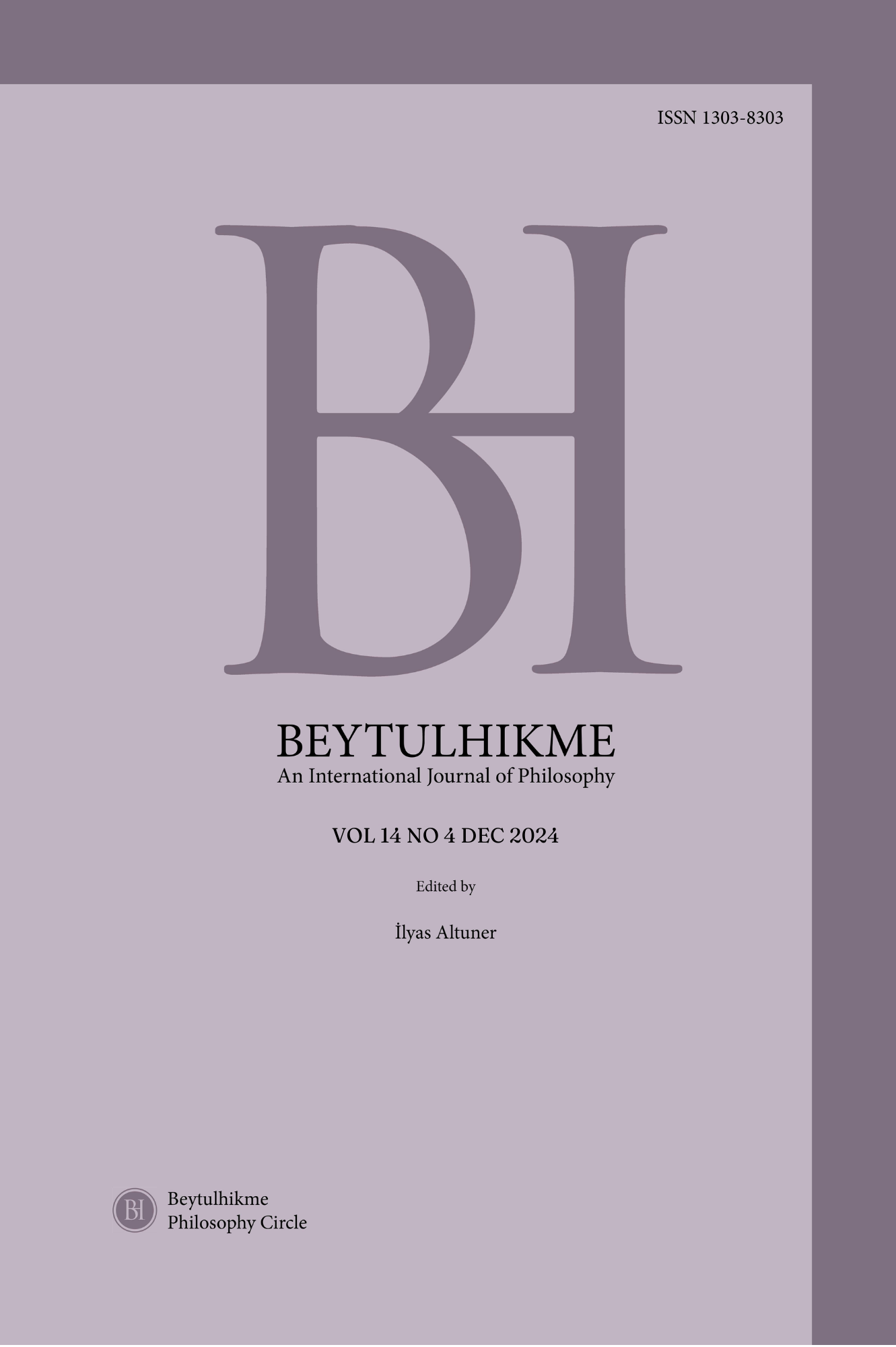Varoluş Deneyimine Felsefi Danışmanlıkla Müdahalenin İmkânı: Kierkegaard’ın Üç Varoluş Aşaması ve 'Körkütük' Filmi Vakası
Author :
Abstract
Birey olmanın inşasında varoluş deneyimi, öznel bir deneyim olup kişinin kendine özgü anlam ve amaçlar belirlemesi ve bunlara bağlanması ile karakterize bir süreçtir. Bu süreçte felsefi danışmanlar, danışanın özgün ve öznel gerçekliğini kavramasına yardımcı olarak değerleri ve istekleri ile uyumlu bir aile, ideoloji ve inanç sistemi inşa etmelerine rehberlik etmektedirler. Kierkegaard, kişi olmanın aşamalarının estetik, etik ve dini olmak üzere üç aşamadan geçtiğini belirtmektedir. Bu bağlamda araştırmada, Kierkegaard felsefesinde yer alan üç aşamalı varoluş deneyimi kapsamında Körkütük (Druk, 2020) filmi başkarakteri Martin’in yaşamı ele alınıp incelenmektedir. Nitel bir yöntemin benimsendiği bu araştırmada, Kierkegaard’ın varoluş deneyiminin üç aşaması olan estetik, etik ve dini aşamalar Martin karakterinin yaşamına karşılık gelen yönleri ile üç tema olarak sunulmuştur. Martin’in haz odaklı, sorumluluktan kaçan bir yaşamdan, kendisiyle ve çevresiyle yüzleşerek derin anlam arayışına yönelmesi, Kierkegaard’ın varoluşsal felsefesinin filmin karakterlerinde somutlaştığını göstermektedir. Varoluş krizlerinin ele alındığı bu araştırma, aynı zamanda orta yaş krizi problemine yönelik felsefi danışmanlık yapacak danışmanlar için önemli veriler sunmaktadır.
Keywords
Abstract
In the construction of being an individual, the experience of existence is a subjective experience and is a process characterized by identifying and connecting to one's meanings and goals. In this process, philosophical counselors help the client to comprehend their authentic and subjective reality and guide them to build a family, ideology, and belief system that is compatible with their values and aspirations. Kierkegaard states that the stages of becoming a person pass through three stages: aesthetic, ethical, and religious. In this regard, the study examines the life of Martin, the protagonist of the movie Druk (2020), within the scope of the three-stage existential experience in Kierkegaard's philosophy. In this qualitative study, the three stages of Kierkegaard's existential experience, aesthetic, ethical, and religious stages, were presented as three themes with their corresponding aspects to the life of the character Martin. Martin's shift from a pleasure-oriented, responsibility-ridden life to a deep search for meaning by confronting himself and his surroundings shows that Kierkegaard's existential philosophy is embodied in the movie's characters. This study, which deals with existential crises, also provides important data for counselors who will give philosophical counseling for the problem of mid-life crisis.





